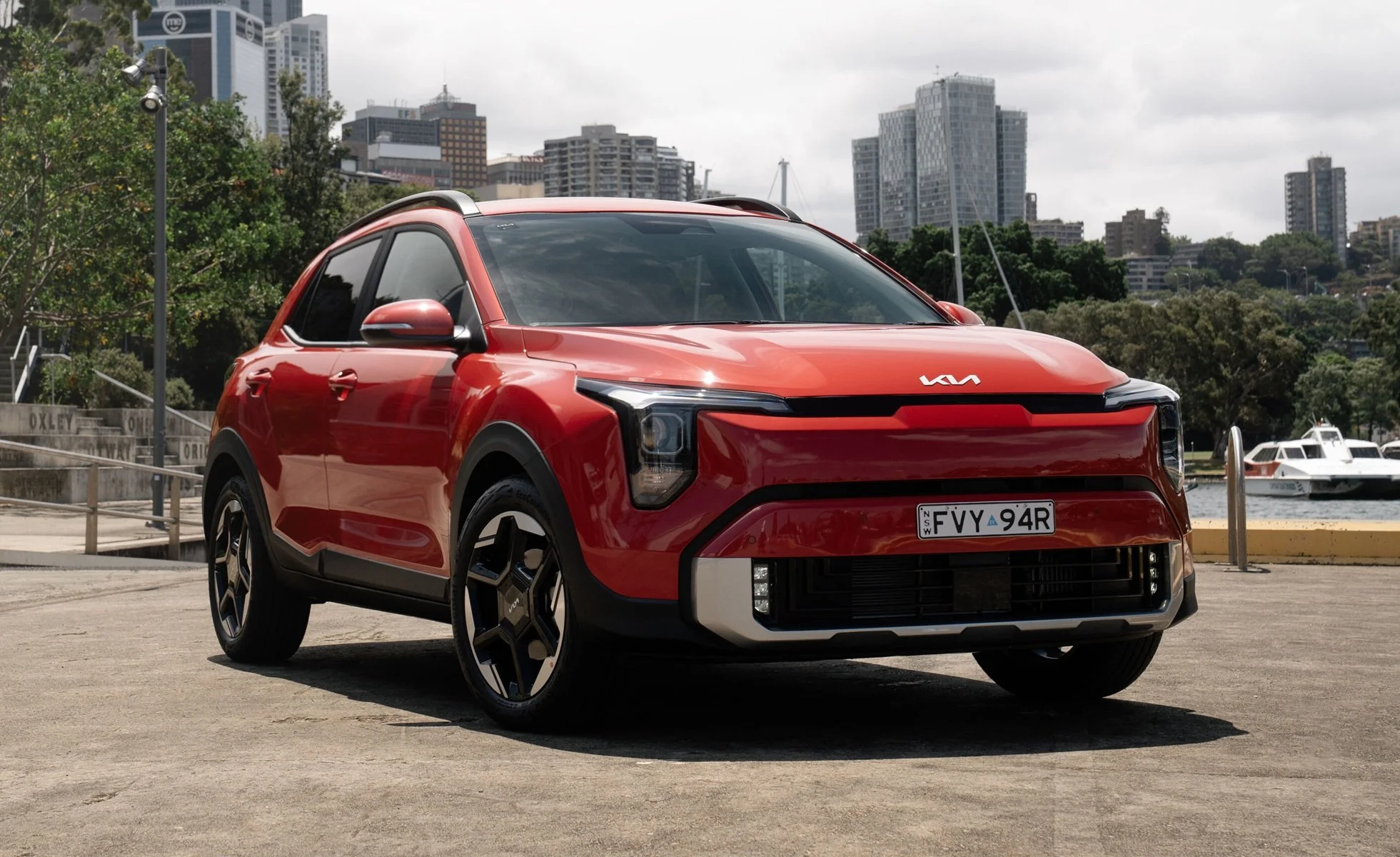How to fight the service department (and win)
If your car has a problem and you're not getting it resolved at the dealership, here are the essential steps you must take…
The issue dujour is from a guy named Mark who’s the general manager of a resources company, which means he’s not a muppet.
He couldn’t be a muppet because you’d have to deal with high-level issue stuff all the time, HR, occupational health, management this and contracts that, commercial viability - that’s your life.
Even people in positions like this, I see all the time, when they deal with a car dealer, they leave all their occupational brains and savviness, their commercial cunning, at the door.
They walk into the car dealership and they blow it. Here’s how you beat a car dealer into submission (metaphorically) >>
So let’s get a course of action if you’re in this position.
Mark says:
“I purchased a 2017 Toyota Hilux dual-cab SR5 late in 2017, brand new, from a dealer on the Sunshine Coast.”
He goes on to say it had the DPF problem which Toyota 2.8 diesels are infamous for, which has been resolved now, thankfully.
He continues:
“The other issue I’m keen to hear your thoughts on is the gearbox which has been a problem from day one. During the services I’ve informed the dealer of the gearbox disengaging (it’s an auto) when in a nose-down angle going down to go over a speed bump or simply turning onto another street. Once you apply power the engine RPM increases apparently without engagement of the gearbox and it eventually clunks into gear.”
This doesn’t sound good, I think you’d agree.
Mark adds:
“This situation doesn’t occur at a nose-up angle, only nose down. I’ve driven many auto boxes over the years and have never experienced this problem.
The dealer informs me this is normal for the vehicle and not an issue. I believe it is not normal and can only feel that problems will only get worse as the kilometres pile up. Would like to hear your thoughts and whether I should persist with my disapproval to Toyota.
This sounds like a serious problem and this is what I suggest you do off the bat:
Mechanical problems of this nature are not a belief issue. It’s in the domain of facts.
So the first job is to establish independently whether this vehicle has a problem or whether it’s operating normally. If this is a normal operational Hilux characteristic, then okay, live with it: the gearbox is going to be durable and maybe it’s minor.
Now, I can’t comment on this exact problem because I’ve never experienced Mark’s vehicle doing this.
So, Mark should get an independent transmission specialist to go out and road test the vehicle and yeah, he’s going to have to pay him for the pleasure of evaluating the vehicle.
But it makes sense to do this because an independent voice here can be worth mega-bucks of he-said she-said personal dispute with the dealer and service manager.
If you’ve got an expert independent out here who says, ‘No, that’s a problem’, or ‘Yeah, that’s just this happening’ and you can understand what it is, then it resolves the issue one way or another.
Then you’re either in the dispute with an independent expert on your side, or you have to just suck-up this operational characteristic. Unless it really does constitute a breach of the acceptable quality guarantee in consumer law.
So job #1: Independent expert.
The pen is mightier
Job #2: Keep records
If you’re in a dispute with a car dealer it’s like being in any other kind of dispute. You have to say to yourself there’s a salient risk there’s a stage down the track I might be in consumer law court and I will have to substantiate my claims about the number of times I’ve raised the issue with the dealer and their responses were whatever.
If all you’ve ever done is have conversations over the counter with some dude in the service department, it's going to be very difficult to do any substantiating of your claims. For example, here’s what you do if your engine blows >>
You will have some service records, obviously, because if they’ve taken your car and performed work and you've paid for it, you’ll have an invoice to substantiate that stuff, but you won’t have much more documentation. And you certainly won’t be able to recall word-for-word who said what, when they said it, and be able to prove it in the heat of a court hearing.
It’s a problem because they (the dealer/manufacturer) can argue the toss about how many times you’ve been there, how many complaints you’ve made and the substance of the discussions etc. It’s your word against theirs.
So, here’s what I’d strongly suggest you do: it’s a bit dangerous to covertly record conversations - mobile phone in the pocket, using it a voice recorder. You could act in a way subsequently which is in breach of various states’ surveillance devices legislation and you really don’t want to go there.
Here in NSW it’s okay to covertly record conversations if they’re just for your own personal use, such as to help your memory across the line. But you can’t produce those recordings in other ways, which would be a breach of that legislation. You don’t want to go there because that would be a criminal offence, the cops can investigate that and you’re in a world of pain.
What I suggest instead is contemporaneous notes have an extremely high evidentiary value in court.
So if you’re in a situation where there’s a dispute over the vehicle and you can’t just handle it by writing emails in the first instance, and you’re having this to-and-fro conversation with the service dude, when you walk out and go back to your car, whip out the high-tech miracle of a notebook and pen, and write down the details of the conversation - immediately.
I mean as soon as possible after the conversation, write down the words that were said: I said “blah blah blah”, he said “blah blah blah”. If it takes ten minutes, it’s ten minutes really well spent if you go to court. Save it, take a photo with your phone, beam it up to the cloud so it can’t be lost. You’ve got a record.
But your administrative responsibilities really don’t end there…
The next thing I strongly suggest you do is find the “info@” or “contact@” email address at the dealership and then send the following email.
You say exactly this:
“On the [date] I attended your service department and spoke to [Name].”
“The substance of the conversation was: I detailed [state the problem here] and [Name] said to me “[summary of the notes you took]”.
“We resolved to take the following action: [summary of what resolution was offered by the service manager dude].”
“I am not happy with this conclusion, (and/or) I demand [explain your ideal resolution].”
And you send the email using Gmail or one of the email servers where they never go away and exist in perpetuity so you can whip them out at any time.
The other real benefit for doing this is because it’s an implicit opportunity for them to repudiate what you’ve said about the substance of that conversation. You’ve given them your version of events and because you’ve sent it by email there’s a record of it being sent: there’s a record. That’s key.
If they do not respond to repudiate those events that’s going to look really bad for them if it ends up in VCAT or NCAT or QCAT or any of those consumer law tribunals around the country.
They’ve had an opportunity to say “it’s a normal operational characteristic”, or “your claim is baseless”, or whatever. If they haven’t gotten back to you to repudiate that, then you have a thick brief of evidence that looks really good - it might end up an inch thick based on some of the reports I’ve heard. But either way, you’ve done your due diligence.
Leg work
All of this documentation looks good because it all substantiates the interaction you’ve had, backwards and forwards, seemingly without end, very frustrating and you are using this position to give you power and leverage.
You’ve experienced this frustration, you might as well get the benefit out of it. Lemons ∴ lemonade
So many consumers get this wrong. They’ve gone through the frustration of multiple trips back and forward to the dealership, and they haven’t capitalised on it by being able to substantiate it down the track with a wad of paper, challenging the dealership to provide them with responses.
When push comes to shove, the more you have the better it looks for you in court and frankly, and it’s only a little bit of extra work. After all, you’re entitled to your consumer guarantees, so you need to prove they’ve been violated.
You’re going to have the legwork anyway, you’re going to have the problem, the argy-bargy across the counter, all you’ve gotta do - and I know in Australia it’s cool to be dumb - is pick up a pen and put it down on a notepad and write down words for five or ten minutes after every interaction.
Send them the follow-up email that says what happened, give them a chance to have time to respond, or tell them you’re extremely frustrated by a lack of resolution.
Last ditch effort
When you get to that final point where the straw is on the camel’s back, it’s knees are about to buckle, you’ve got to do one more thing.
Take out your credit card, plonk yourself in front of your solicitor and get actual advice from a lawyer.
I see people all the time who’ve spent 60 grand or something on an SR5 or Ranger Wildtrak and they’re having this problem - it’s a real problem for them - but they want the cheap-arse legal advice. They want to go to consumer affairs or whatever, the free government service for advice.
They’ve got the money to spend on half an hour or an hour before a lawyer (it doesn’t have to cost 20 grand to go to tribunal), you don’t have to spend that kind of money if you’re half literate and a decent operator and reasonably articulate.
All you need to do is get advice from your lawyer about how to proceed next, and you can just do that. It’ll cost you several hundreds but by the time you get to the pointy end, but it won’t be several thousand.
By the time the dealer, as the first respondent, and the manufacturer as the second respondent, are starting to feel as though you’re going to engage them in this way and there’s a balance of probability you might win and you’ve said several times by email you’ll “have no choice but to lodge a formal complaint with the ACCC regarding your conduct here”, then by the time you’ve got all of that, they’re really likely to cave in and say: “We’re going to solve your problem”.
And that is exactly what you want.
You gotta fight…
I know there are hundreds of people in this situation at any one time and it’s a hot topic right now with the ACCC.
I also note push-back from several groups now, industry association-type groups representing dealers, trying to frame this debate in the context of evil owners trying to profiteer or dishonestly represent themselves under Australian Consumer Law or cope with buyer’s repose using consumer law.
It’ll be interesting to see how this particular war-or-words pans out.
But if you’re in that situation as well as Mark, where the vehicle is not behaving the way you want it to, and you think it’s defective, I’d suggest you’re a mug if you don’t do something about it.















There’s plenty to like about the 7-seat Ford Everest for hardcore off-roading and heavy towing thanks to its big V6 diesel. But is it wise dropping up to $80K on Ford these days?